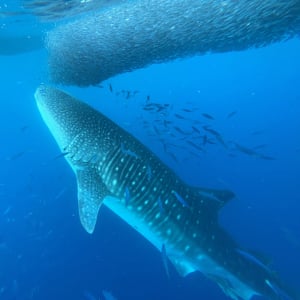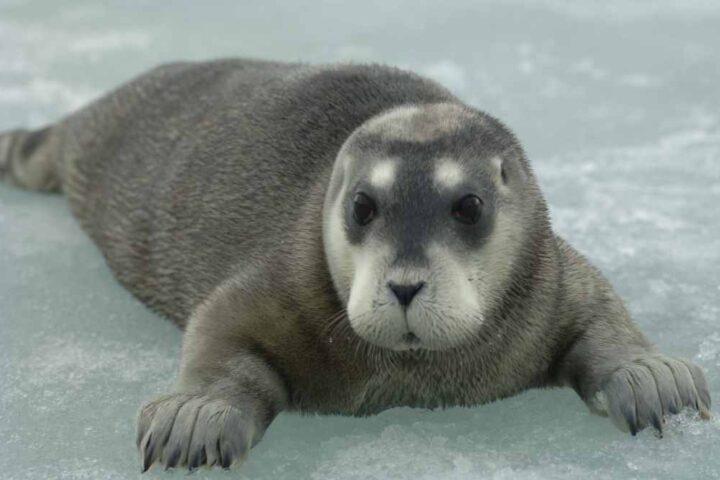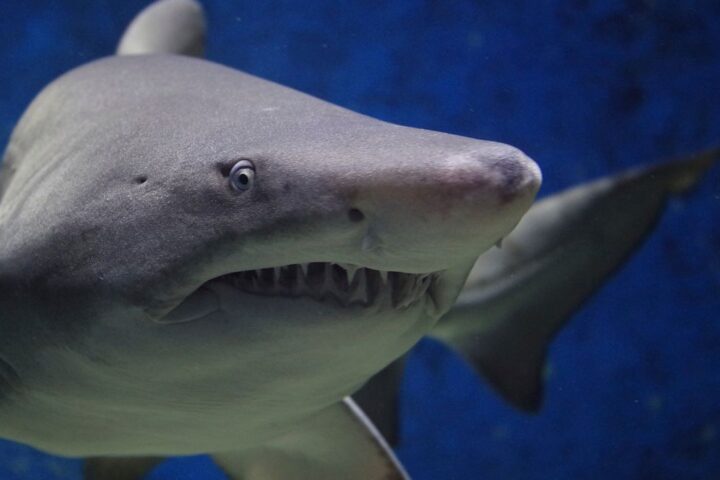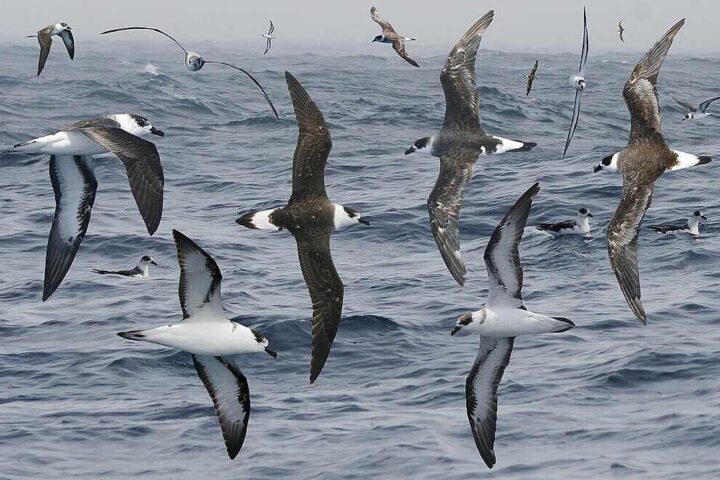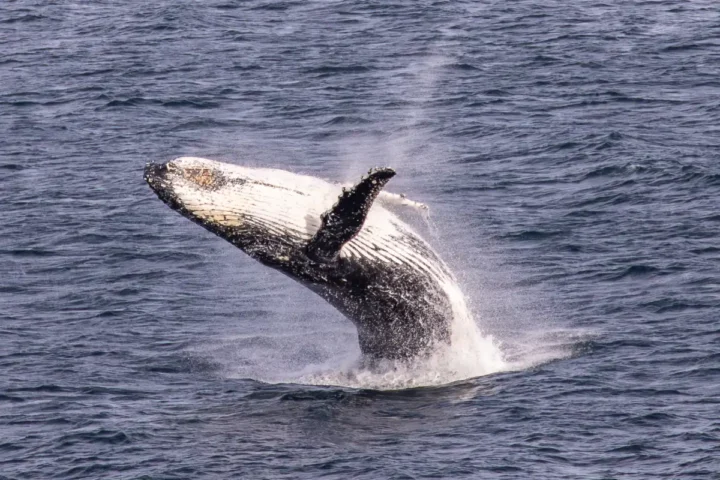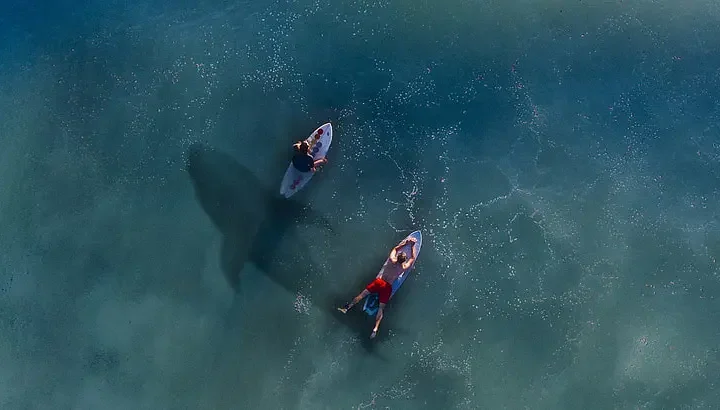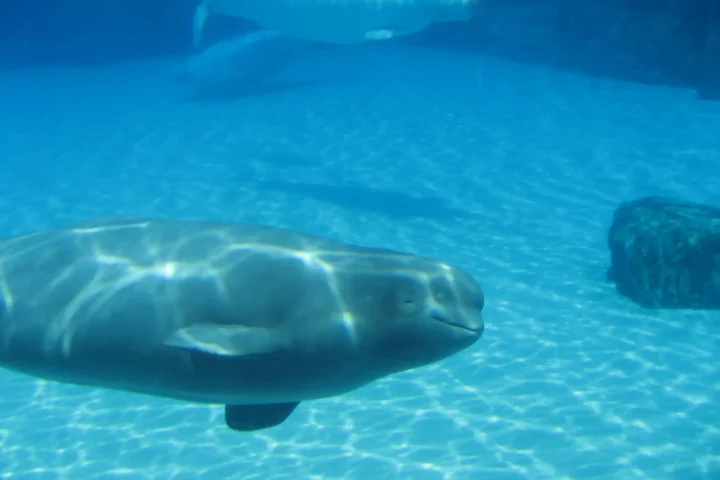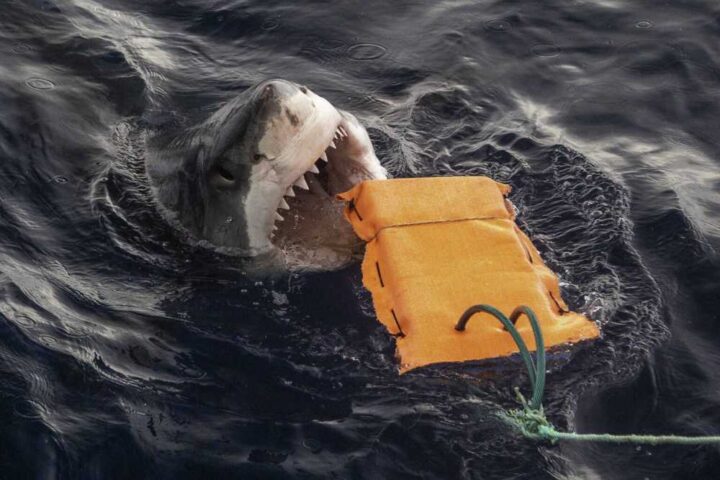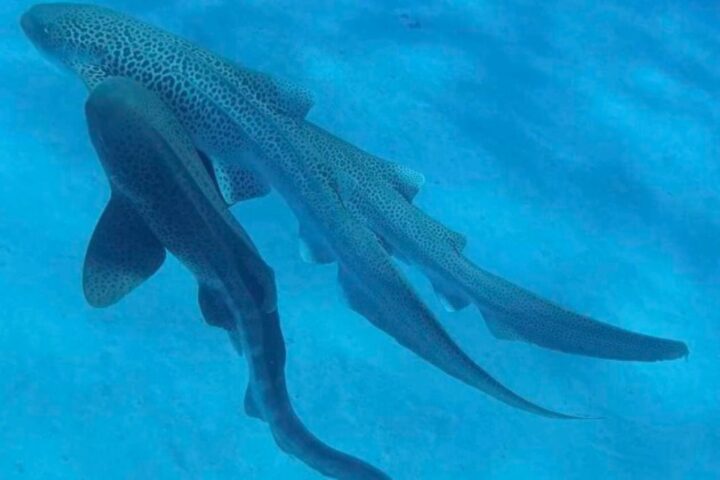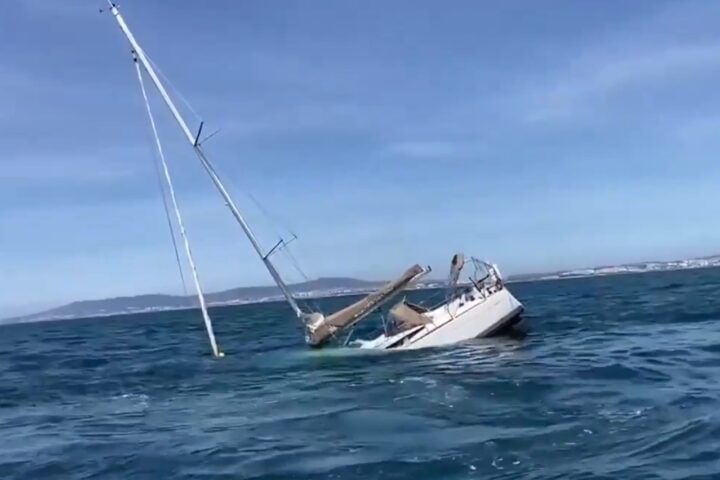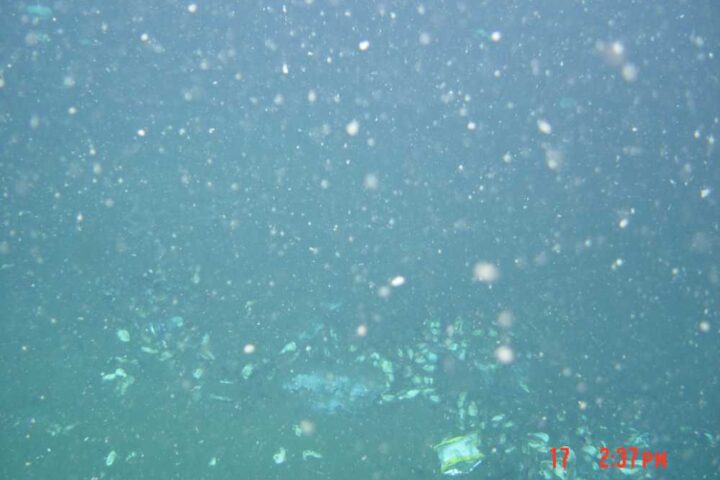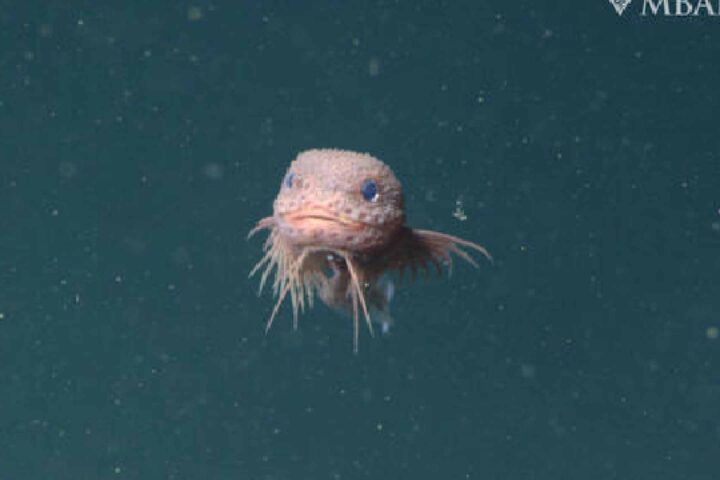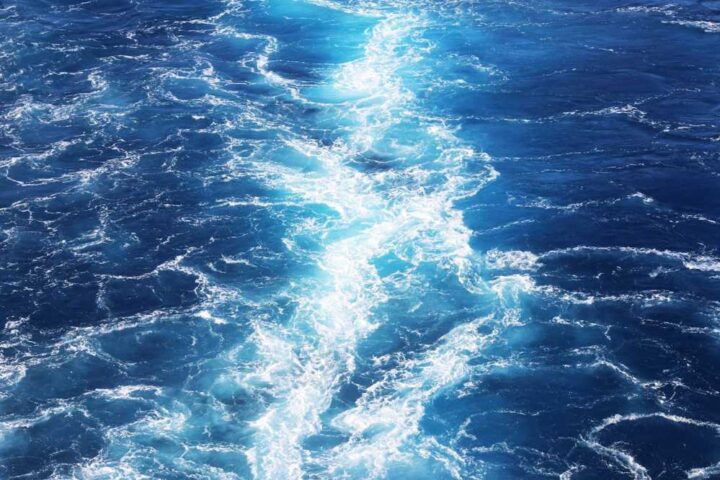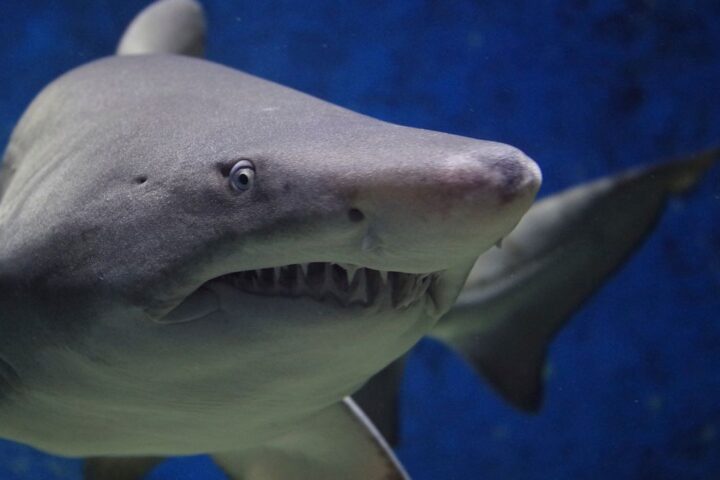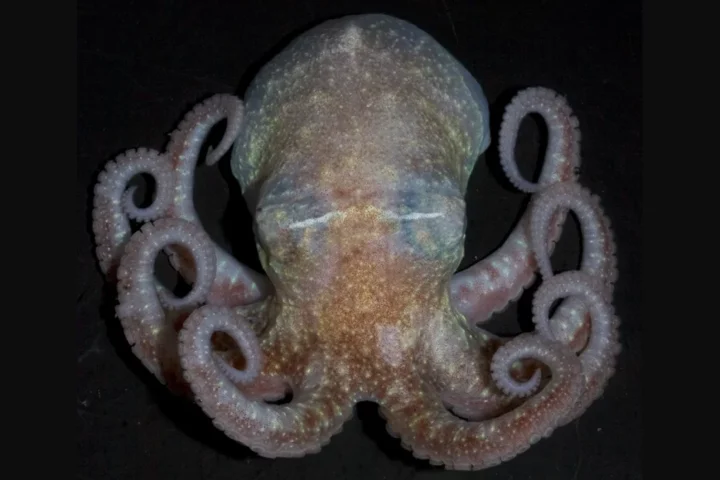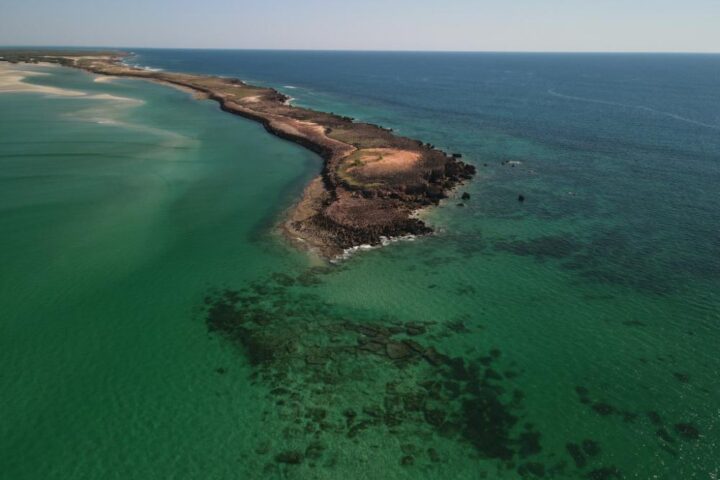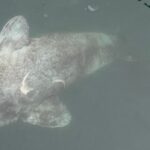On November 2, University of Hawaiʻi at Mānoa researchers, while wrapping up their fieldwork, encountered a 30-foot whale shark near Kualoa Ranch, just a mile off Kāneʻohe Bay. This sighting is a significant addition to the marine life encounters documented in Hawaiian waters.
The team from the Hawaiʻi Institute of Marine Biology (HIMB) Shark Research Lab was initially attracted to the site by seabirds hovering above a bait ball—a phenomenon where small fish cluster in a dense formation, often a sign of predatory activity. Mark Royer, a HIMB researcher, dove into the water to explore and found himself face-to-face with the whale shark. Royer’s reaction was one of surprise, as he stated, “I didn’t see this animal until I hopped in the water.”
Feasting on nehu, the Hawaiian anchovy, the whale shark was surrounded by a bustling community of marine life, including mackerel scad, mackerel tuna, skipjack tuna, sandbar sharks, and seabirds. Royer described the feeding event: “the whale shark was coming in and using its massive mouth to come up to the surface, open it, and then the suction would cause all the fish to funnel into its huge mouth.”
The whale shark also displayed a recurring interest in the researchers’ boat, a behavior that aligns with historical observations. In Hawaiian culture, whale sharks are known as Lelewaʻa and have been noted to approach and interact with canoes.
Similar Posts
Whale shark sightings, while still rare, may be more common than previously thought. The Hawai’i Uncharted Research Collective suggests that these majestic creatures might be frequenting Hawaiian waters more often than the records indicate. This aligns with global patterns where whale sharks, despite their elusive nature, have been spotted in various parts of the world, indicating a wider distribution than understood.
The HIMB’s work contributes to a broader understanding of shark ecology and behavior. Encounters like these are crucial for conservation efforts, providing insights into the species’ habits and their role in the marine ecosystem.
The researchers’ experience with the whale shark emphasizes the need for respectful wildlife interactions. Whale sharks, despite their size, are gentle and should not be disturbed. This encounter is a reminder of the delicate balance within marine ecosystems and the importance of conservation efforts to maintain it.
The sighting of the whale shark by the HIMB team adds a valuable piece to the puzzle of marine life in Hawai’i. It highlights the diversity of the ocean’s inhabitants and the ongoing need for research and conservation to protect these remarkable species.
